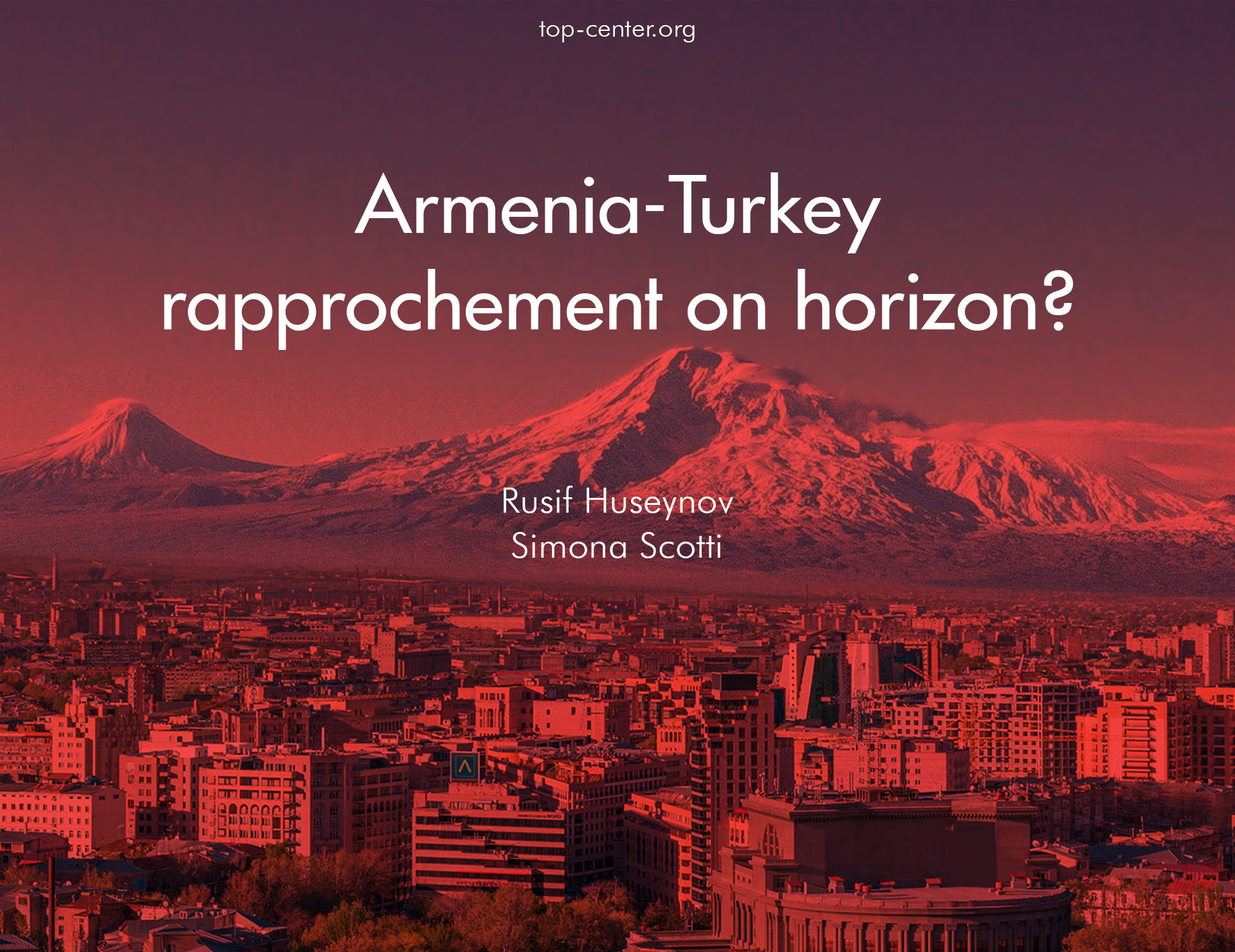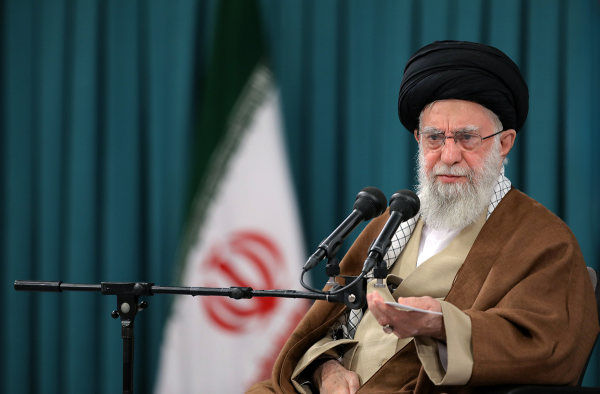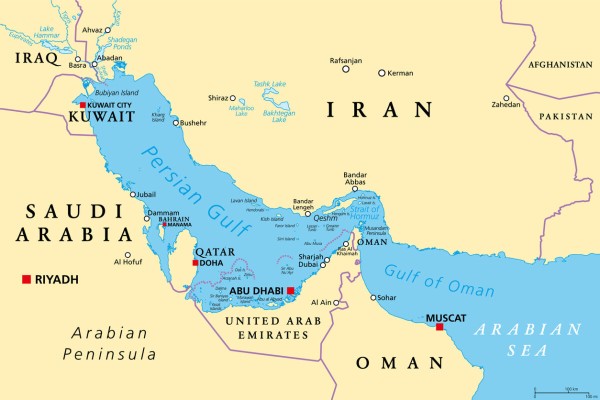Armenia-Turkey rapprochement on horizon?

Prospects of rapprochement between longtime adversaries Armenia and Turkey seem closer than ever for the first time in a decade. After almost 30 years of closed borders and no diplomatic relations, some signals indicate that Yerevan and Ankara might be ready to rebuild their ties and to foster their reconciliation. The partial détente is evidenced by the recent statements of the two leaders, Nikol Pashinyan and Recep Tayyip Erdoğan, who had put aside traditional hostile rhetoric and replaced it with a trade of more positive public messages.
In a government meeting that took place on August 27, the recently re-elected Prime Minister Pashinyan stated that ‘Armenia has received some positive signals from the Turkish side for the establishment of peace in the region’, and that Yerevan is ready to reconcile with Turkey ‘without preconditions’. In turn, on August 29 President Erdoğan declared that Turkey ‘can work toward gradually normalizing our relations with an Armenian government that states it is ready to move in this direction' while reiterating that ‘we need a constructive approach in our region. Even if there are disagreements, neighborly relations should be developed on the basis of respect for territorial integrity and sovereignty.
A scenario of reconciliation, if it is to happen, may lead to an interesting geopolitical change in the balance of power in the Caucasus.
Armenian-Turkish relations in modern history and in the post-war
Turkey was one of the first countries to recognize Armenia's independence in September 1991, during the collapse of the Soviet Union. However, the two nations failed to establish diplomatic relations, which many experts would relate to the Armenian stance towards Turkey (the politics of genocide recognition, the role of the Diaspora, territorial claims of Armenian nationalists against Turkey, calls for the revocation of the treaty of Kars and the implementation of the Treaty of Sevres, etc.) or if looking from the perspective of Armenian partisans, Turkey’s policies against Armenia (alleged expansionist intentions, pan-Turkism conception, etc.) While “all of these popular answers are based on conjecture and prejudice. The real answer is much simpler: it was the Karabakh conflict,” says Arman Grigoryan, International Relations Professor at Lehigh University, in his interview with the authors of this article.
Indeed, it was the occupation of the Kalbajar province of Azerbaijan by Armenian forces in 1993 that provoked a harsh reaction by Ankara: Turkey closed its borders with Armenia, including the Alijan-Margaran and Dogukap-Akhurik gates, in addition to imposing an economic embargo on Armenia and co-sponsoring UNSC Resolution 822 affirming Nagorno-Karabakh as part of Azerbaijan's sovereign territory.
Since then, relations between Yerevan and Ankara have remained frozen, and although there have been few timid hints of a possible détente over the years, new setbacks, competing priorities and regional developments have contributed to prevent the normalization of bilateral relations.
After the outbreak of the Russo-Georgian war in 2008, which made the only commercial land access to Russia unusable, the severe risks of the Armenian position were highlighted. It was precisely in 2008 that an attempt at rapprochement between the two countries took place, through what has been known as “football diplomacy”. Until then, Armenian and Turkish football teams had never met, but the new awareness of Armenia’s weakness led the then President Serzh Sargsyan to invite his Turkish counterpart, Abdullah Gül, to the football match between the two national teams in Yerevan. The interactions that resulted from this football diplomacy manoeuvre led to the signing of the Zurich Protocols in 2009, which offered a basis for further dialogues and negotiations with the aim to re-establish formal diplomatic relations, open the international border, and set up a joint history commission to address the issue of the 1915 events. However, the pressure exerted by Baku on Ankara to prevent the normalization of bilateral relations due to the non-withdrawal of troops from the occupied Azerbaijani territories led to the failure of the ratification of the Protocols. Since then, the freezing of Turkey and Armenia bilateral relations has remained practically unchanged, with the exception of some minor and purely informal events.
Given the long record of failed rapprochement attempts, it is legitimate to wonder how this attempt to normalization is different from the others. As a matter of fact, two substantial differences emerged. The first concerns the end of the war in Karabakh. After the end of last year’s war, which resulted in the return of the occupied territories to Azerbaijan, Ankara’s primary justification for refusing relations with Armenia became obsolete. Indeed, during a visit to Azerbaijan on October 27 President Erdoğan declared that ‘Armenia should demonstrate sincere resolve in these issues to solve problems with Azerbaijan. If it shows goodwill towards Azerbaijan, then there will be no obstacles to the normalization of relations between Turkey and Armenia ’. One more difference consists in the fact that the conversations were started by the directly involved parties, and not by external actors - although Georgia was used as a liaison between the two. This suggests a genuine interest in moving towards a rapprochement.
These differences suggest that the current rapprochement might lead to more concrete results than the past processes. Yet, there are still some mandatory requirements that remain in place. What Turkey demands is more or less known: the de-politicization of the 1915 events, the recognition of the Turkish-Armenian borders established by the Treaty of Kars, and Yerevan's approval of the Zangezur Corridor, which will link the Autonomous Republic of Nakhchivan to the rest of Azerbaijan through the Syunik region in Armenia. Yerevan in turn has been demanding the recognition of the 1915 events as a genocide, in the revocation of the Treaty of Kars along with the implementation of the Treaty of Sevres, and the termination of Turkey’s expansionist intentions. However, after the ceasefire agreement, the premises have widely changed, and Armenia authorities seem to strive to start negotiations without any preconditions. The will to start the normalization process without preconditions is itself a condition, and it implies that the process will be tied neither to the recognition of the Armenian genocide nor to the Armenian-Azerbaijani process.
Benefits and risks of normalization
Being one of the three neighbors of the South Caucasus, Turkey is naturally interested in the region, and, after the end of the second Karabakh war, it has already started to cement its presence. The signing of $15 billion contracts by Turkish companies in reconstruction projects in Karabakh testifies Turkey’s growing economic presence in a region that has been considered as Russia’s domain for a long time. A normalization of the relations with Armenia would mean having an open road to Azerbaijan, but also to Central Asia, connecting Turkey to the rest of the Turkic world. Similarly, opening borders with Ankara would mean for Yerevan a direct access to the Mediterranean and to the West, which would bring countless benefits for the landlocked Armenia. ‘Normalized relations with Turkey will mean a reduction of threats and hostility from Turkey and the natural benefits of economic cooperation with a neighbor that has a large market. Turkey can also become an alternative access to the world for Armenian goods’, Grigoryan stated, while Armenia’s Economy Minister Vahan Kerobyan calculated that unblocking communications will help increase Armenia's GDP by 30% in two years. The economic rationale at stake for both countries is thus substantial, and the opening of their borders would also allow them to diversify foreign policy and become more integrated in world structures.
Moreover, for Turkey, a rapprochement to Armenia could help normalize the former’s strained relations with the West, while from the normalization process Yerevan would gain an overcoming of its regional isolation and marginalization, along with a reduction of its reliance on Moscow. Indeed, Armenia's excessive dependence on Russia, especially after the last war, is a substantial obstacle for Yerevan, and perhaps Prime Minister Pashinyan is willing to counterbalance this growing Russian factor by forging normal relations with Turkey, thus assuming a more independent status from Moscow than in the recent past. If on the one hand Russian officials have repeatedly voiced support for the normalization process, on the other hand it might complicate Russia’s regional plans.
As a matter of fact, it would not be the first time that neighboring countries interfere with the normalization process, and some countries have traditionally been against the Armenia-Turkey rapprochement. For instance, in one of his recent speeches, Jirayr Libaridian, Adviser to then-President Levon Ter-Petrossian and in charge of talks with Turkey in the early 1990s, shared a noteworthy anecdote. According to him, every time when he returned from Ankara, he would find in his office in Yerevan the ambassadors of three countries, namely Russia, Iran and Greece, who were curious about the status of the negotiations between the Armenians and the Turks. In one instance, Libaridian communicated to the Iranian Ambassador that the talks were going well and the sides were near to the opening of the borders, although that was not the case in fact. However, the Iranian Ambassador asked “What about the genocide?”, which is explanatory of the regional attitudes at those times.
At the same time, on the Armenian side, there are concerns about the possible spread of the so-called “Ajarization” if the two countries reinforce business ties. The term refers to the massive Turkish investments in the Georgian region of Adjara, which have led to remarkable growth of Turkey’s influence in the region, to the point that some refer to a “Turkification” of Batumi. The fears relate to the prospect of a parallel situation in Armenia, which, according to some views, may be “Turkified”. In this regard, Grigoryan reported that ‘There will be resistance, but I don’t think it will be strong enough to derail the process. Two things might change that. First, if there is a powerful external actor that lends political support to such resistance. Second, if Turkey and Azerbaijan put forward new conditions and try to extract additional concessions from Armenia’.
Azerbaijan`s stance
The Armenian party has long required the Armenia-Turkey relations to be a bilateral matter by excluding Azerbaijan from this regional triangular configuration. In a recent statement, the Armenian politician Eduard Aghajanyan declared that ‘we want Turkey to realize – and we ourselves need to do it too – that Azerbaijan and Turkey are totally different entities and individual players in the region, whose interests are not necessarily identical.
Last year’s events resulted in a substantial change of Azerbaijan's position regarding the rapprochement of the two countries. Unlike the process conducted at the time of soccer diplomacy and the Zurich protocols, this time there was no manifestation of hysteria from the Azerbaijani side. Perhaps this implies Baku's tacit approval. ‘Azerbaijan opposed the normalization between Armenia and Turkey in 2009 on the argument that Turkey had closed the borders after the occupation of Kelbajar in 1993’, Ankara-based political analyst Hasan Selim Özertem told Eurasianet, referring to the first of the Azerbaijani territories to be occupied. ‘Before Armenia’s withdrawal from this region, Baku saw Turkey’s opening of the borders as a betrayal and harshly criticized it. Now, after the truce, this issue is off the table and it won’t be a surprise to see a milder tone from Azerbaijan than in 2009’.
This change of attitude on the part of Baku can be partly traced back to the outcome of the 2020 war, and partly to the awareness that the normalization process between Turkey and Armenia could even benefit Azerbaijan itself, along with the confidence that Turkey will not act against its interests. Indeed, it might be more favorable to open borders simultaneously, because with bigger economic potential Azerbaijan and Turkey, either separately or as a tandem, would definitely have an upper hand vis-à-vis Armenia.
Conclusion
Although it is premature to indicate whether the two countries will be able to reach a peace agreement in the next period, the signs observed in recent months raise hope in this direction. While the fears and concerns of the Armenian side about the growing influence of Turkey are understandable, there could be some optimism about the possible role that Turkey can play in the region. The reconciliation of the traumatic relations between Armenians and Turks and a substantial political will are required to reset relations. At the same time, both countries share significant economic relations, and in Turkey, there are labor migrants who are citizens of the Republic of Armenia. This means that people can drop their prejudices and start over. ‘There is also the intangible benefit of trust-building. The two societies have been isolated from each other for nearly 100 years, following a violent history. The opening of air travel in the early 2000s significantly impacted the relations between the societies and helped challenge many stereotypes. The previously unknown, stereotypical enemy became a regular person. Yet air travel was limited to a small number of people. Opening a land border will foster day-to-day interactions which will help to build trust ’, reminded Philip Gamaghelyan. However, this will take time and should be phased. By using the term coined at the turn of the 17th century in a different historical context, Turkey is the “window to Europe” for the Caucasus, whether this very fact is liked or not. And one thing is clear in this whole context: Armenia needs Turkey more than Turkey needs Armenia.








